Will the Democrats’ covid-19 bill help them win over lower-income whites?
They have traditionally ignored the benefits of lefty economic policy in favor of other issues. That could be changing.
For as long as I’ve been writing about and studying public opinion (granted, four years is not that long), lower-income white votes have engaged in seemingly-paradoxical behavior: voting for Republicans. Past research suggests that this pattern has been going on much longer — like, since I’ve been alive (again, for some of you, that might not be very long!). In 2005, the political scientist Larry Bartels wrote (somewhat condescendingly) about lower-income white Republicans supporting the Bush tax cuts, despite the fact that the policy increased wealth inequality and would place larger burdens for social spending on the lower class. He titled his paper “Homer Gets a Tax Cut.”
Nearly two decades later, we have quite a bit of data to untangle this puzzle. The answer, in the simplest terms, is that white voters are motivated by things other than policies that would benefit them economically. Some research suggests that they oppose social spending because of racial conservatism — they like redistributive policies enough, but don’t like that they help minorities. Racial “resentment” is also one of the driving factors of voting for Republican politicians. In their book Let Them Eat Tweets, Jacob Hacker and Paul Pierson also document how the GOP uses religious cultural issues — sometimes hollow, sometimes now — and faux outrage to distract lower-income whites from economic policy that would otherwise improve their wellbeing.
Editor’s Note: If you found this post informative, do me a huge favor and click the like button at the top of the page and the share button below. As a reminder: I’m fine with you forwarding these emails to a friend or family member, as long as you ask them to subscribe too!
The last year or so offers a new wrinkle in this story. The covid-19 pandemic has laid bare how close most Americans are to utter financial ruin, and the increasing salience of economic inequality over the past few years may have made Republicans more open to redistribution. My best guess from the polling data is that only 40% or so of whites earning below the median income voted for Joe Biden last November — but more than 60% were in favor of the economic stimulus he and the party just squeezed through Congress:
From a transactional politics perspective — “Democrats gave us something we wanted,” a hesitant lower-income white Republican might say — this is a big success for the left. Further, modeling from the Tax Policy Center shows that the lower quintile of Americans by income will see their after-tax earnings rise by 20%:
That rate of growth is incredibly accelerated; to put it into context, it’s about double the percent change in mean household income for the bottom quintile across the past decade. It’s twenty four years of growth in one.
That’s a pretty big f’ing deal!
I’m not drawing conclusions here, but this sort of social spending could have the potential to change Democrats’ fortunes with lower-income Republicans. Polling from the Pew Research Center shows that nearly a super-majority of them favored the bill:
About a quarter of Republicans also said they thought that Biden made a good-faith effort to work across the aisle on the bill. That’s not a ton, but it certainly beats the baseline (about 10% of Republicans say they approve of Joe Biden’s job as president).
All this adds up to a pretty big opportunity for Democrats. If they can combine the policy/political victory from these early days of Biden’s presidency with broader class-based political messaging, they may be able to court some of those working-class whites they lost since 2008 and reorient politics around class struggle, rather than racial conflict or the culture war. Until now, that has been a pipe dream.

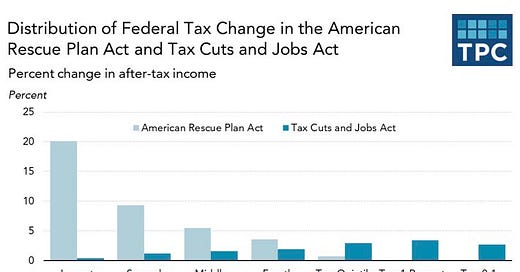


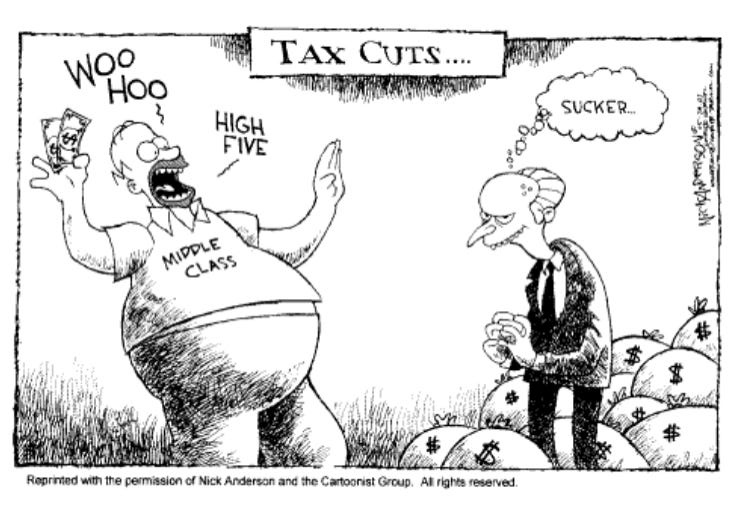
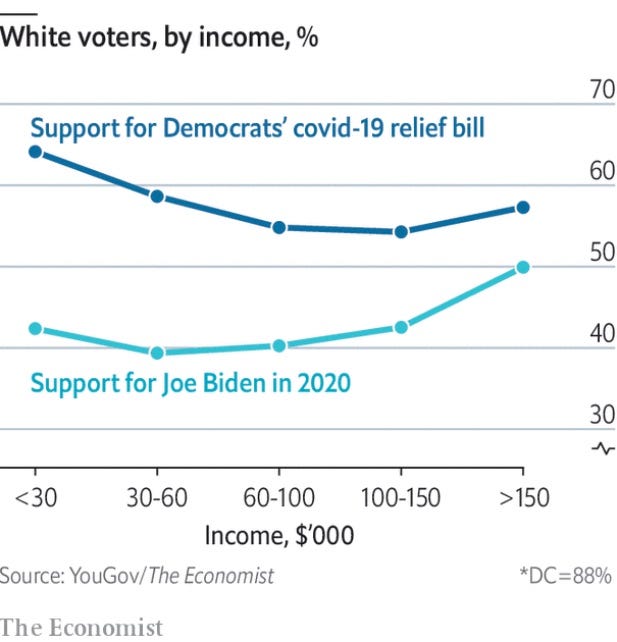

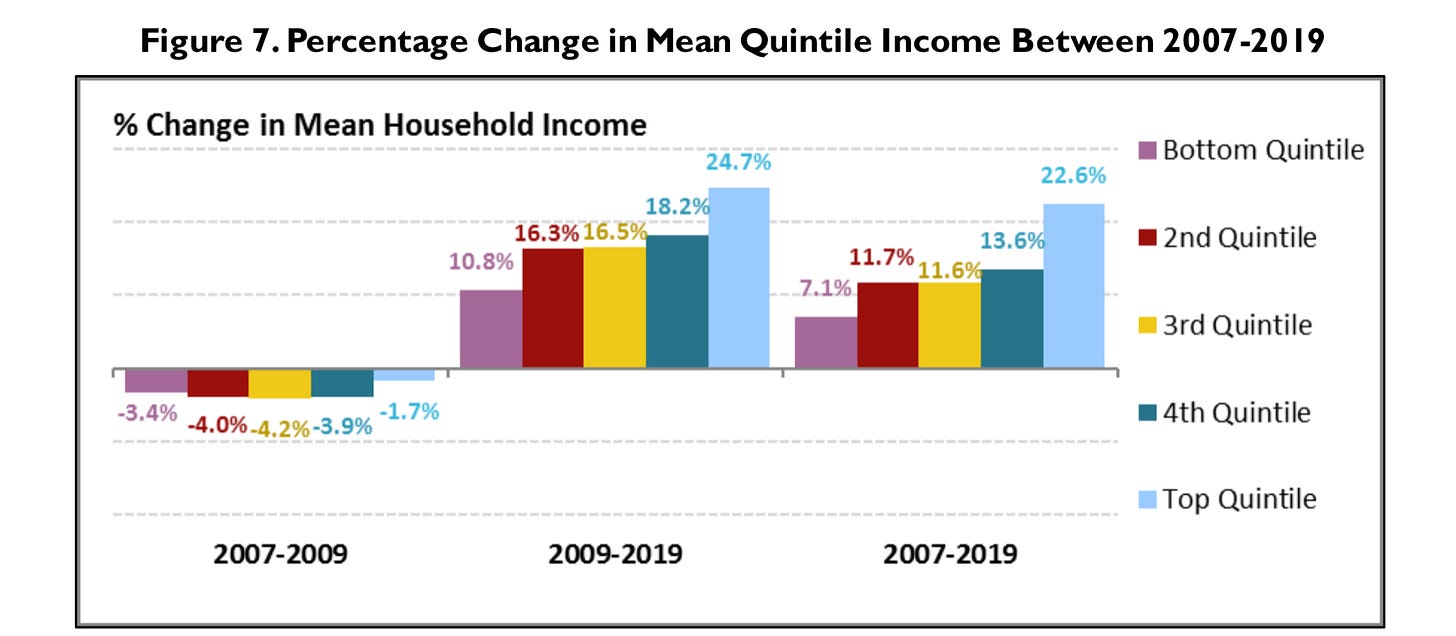
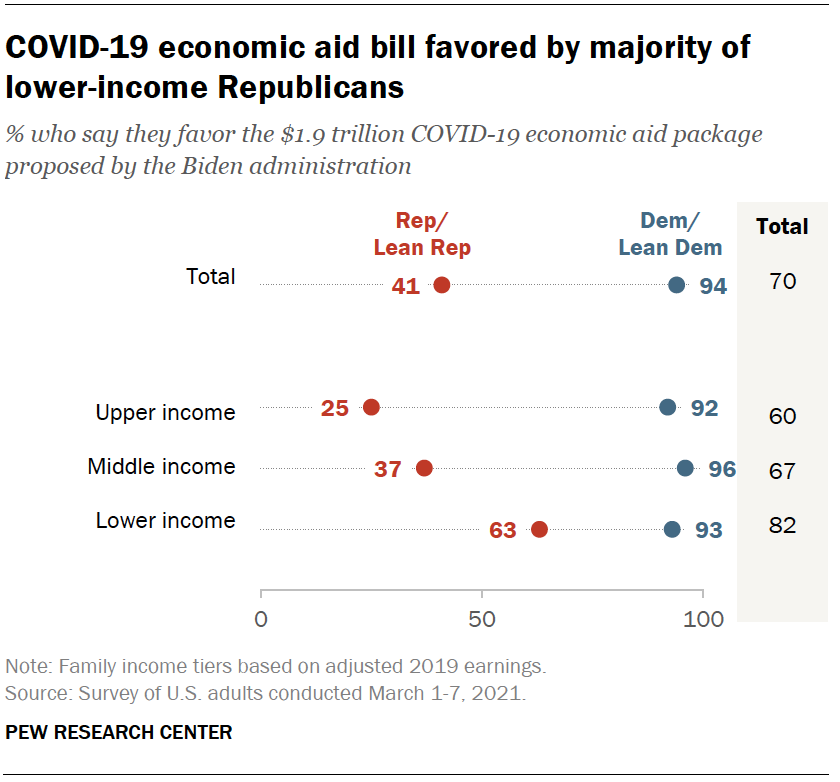
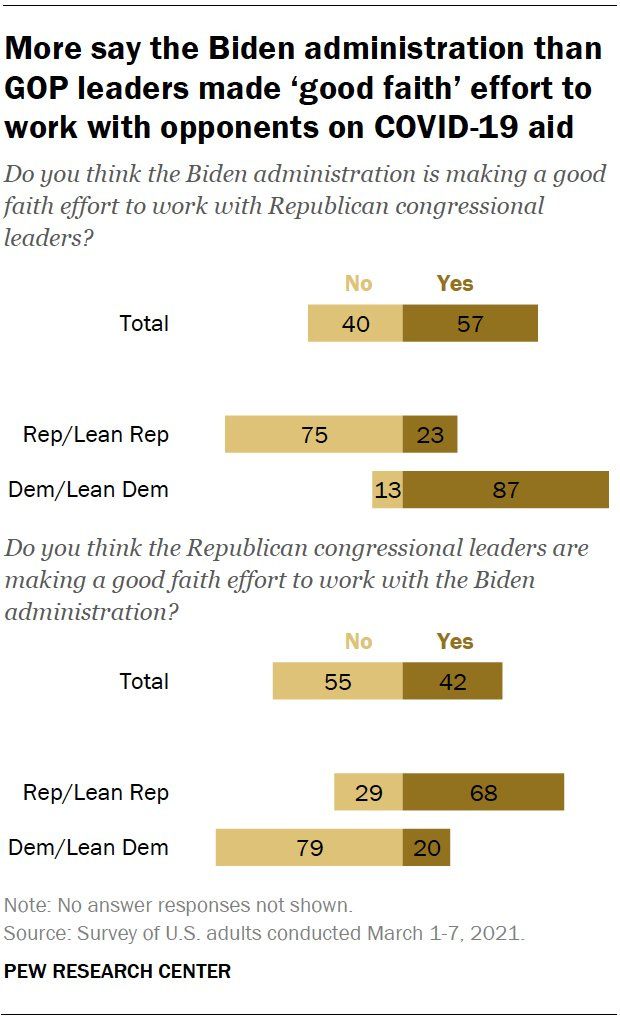
Very interesting post as usual, Elliott. I've been wondering about the right way to think about the net effect of -on the one hand- Biden's coming into power at a time where meaningful improvements in most Americans' lives should materialize and implementing popular policies, and -on the other- the conventional wisdom that suggests midterm dynamics (plus the effects of redistricting) are likely to cost Democrats their House majority. What is your intuition on this question?